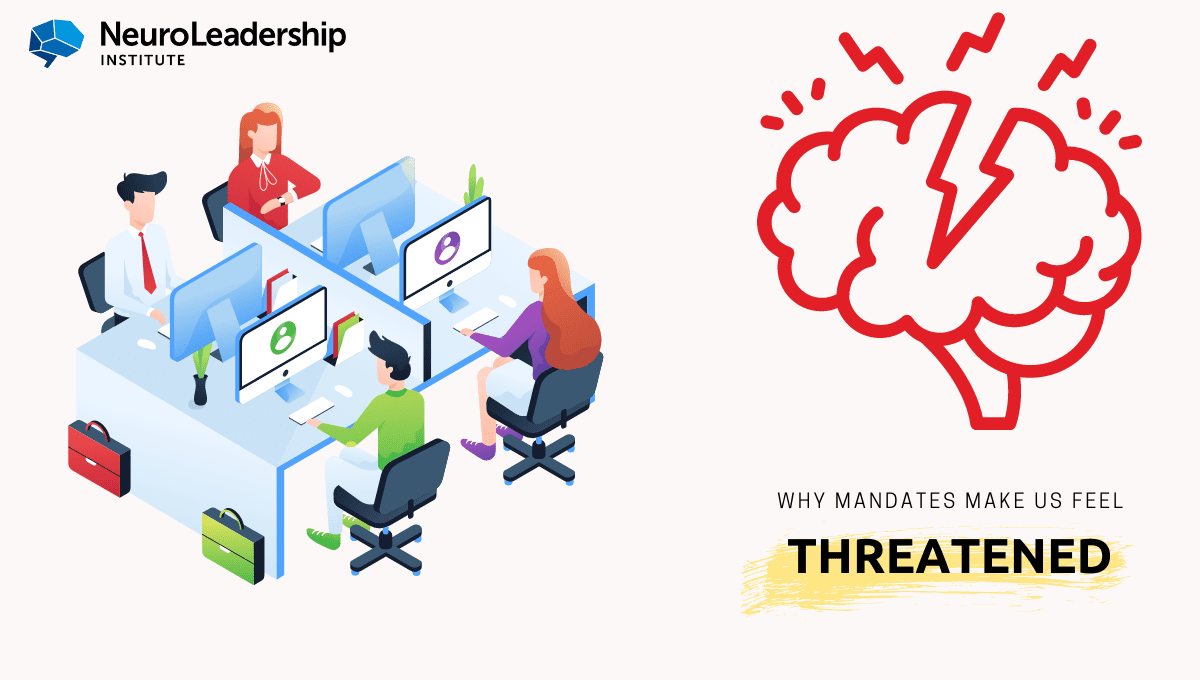As artificial intelligence becomes embedded in our daily workflows, a critical question emerges: Are we just teaching people to use AI, or are we empowering them to think with AI?...
Read More →
NeuroLeadership in the Media
As artificial intelligence becomes embedded in our daily workflows, a critical question emerges: Are we just teaching people to use AI, or are we empowering them to think with AI?...
Read More →Many employers have turned to employee tracking software—surveilling the everyday activity. Christy Pruitt-Haynes provides guidance on what to do instead.

Whether it’s a past mistake, a misunderstanding, or simply getting off on the wrong foot, not everyone will have a high opinion of you. Unfortunately, that negative perception can impact your ability to work together, lead, or get ahead.
In this article cognitive scientists including NLI’s own Dr. Michaela Simpson come together to provide readers with tips on how to assess—and improve—relationships that start off badly.

Employees are increasingly demand that their employees take action to address cultural problems and inequity. In this CNN business article, Dr. David Rock provides a perspective on what to do about it.

Dr. David Rock, CEO and Co-Founder of NeuroLeadership Institute, provides Hive with neuroscience-backed methods to help successfully approach difficult conversations at work.

In this article from Toptal, Dr. David Rock (CEO and Co-Founder of NeuroLeadership Institute) explains distance bias and some of the challenges organizations will face when implementing remote and hybrid work.

As companies figure out how to implement vaccination mandates, brain science can help leaders develop strategies for managing employee reactions. Mandates feel like a violation of autonomy, which is one of the five most important intrinsic drivers of threat and reward in the brain. To help people feel less threatened, managers can try to offer another form of autonomy — for example, with the vaccine, this may mean allowing employees to choose when, where, or how they receive the shot. Another way to address the threat is to try to trigger one of the brain’s reward drivers. For example, the jarring nature of reduced autonomy (“Why am I mandated to do something?”) can be partially offset by increasing feelings of relatedness between employees (“I haven’t felt this close to my team in a while.”) Managers can also take steps to make employees feel greater levels of certainty, another of the brain’s reward drivers. While it’s difficult to provide absolute certainty when dealing with a mutating virus, transparency and communication can help provide clarity.

Leaders who aim to improve themselves and their teams traditionally embrace management methods and HR principles. But they’re often missing a critical tool: a deeper understanding of the human brain. David Rock, CEO and co-founder of the NeuroLeadership Institute, a global neuroscience-backed consultancy that advises over half of the Fortune 100 companies, including Microsoft and Adobe, on leadership strategies, management skills, and diversity, equity, and inclusion, defines this tool as “neuroleadership.” The Ladders interviewed him to get the scoop on what exactly neuroleadership is and how you can use it to become a better leader, improve your team and organization and drive more success.

In this article from EBN, NLI’s Senior Director of Neuroscience Research, Dr. Kamila Sip, explains the benefits that a 4-day workweek can offer toward mental health and productivity.

In this Fast Company article, Dr. David Rock (CEO and Co-Founder of NeuroLeadership Institute) provides some insight on how to handle feelings of jealousy brought on by a work situation.

Research has shown that diverse companies are more innovative and perform better. But strategies typically used to create inclusive work environments haven’t always been effective and often make things worse. Experts believe that the future of diversity, equity and inclusion in the workplace will be about creating habits that help mitigate some of our most basic unconscious biases. And getting there requires some uncomfortable conversations. (Source: Bloomberg)

Join millions of employees in creating culture change at scale by reaching out today.

In 2007, David and Lisa Rock and their team had been working in leadership development and executive coaching for ten years, when David coined the term “NeuroLeadership.”ef

North America
Africa
South America
Asia
Europe
Australia
© NeuroLeadership Institute 2025. All Rights Reserved
This site uses cookies to provide you with a personalized browsing experience. By using this site you agree to our use of cookies as explained in our Privacy Policy. Please read our Privacy Policy for more information.